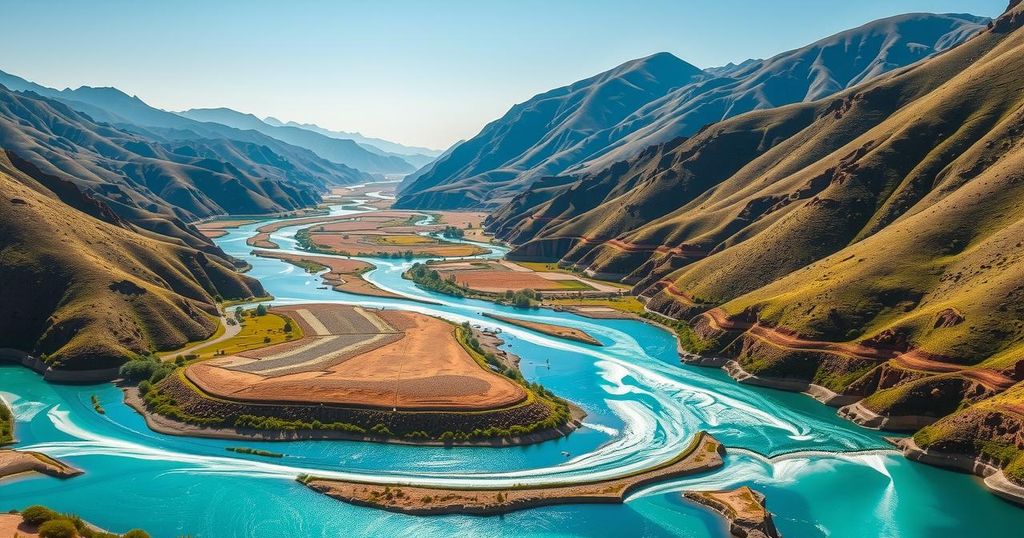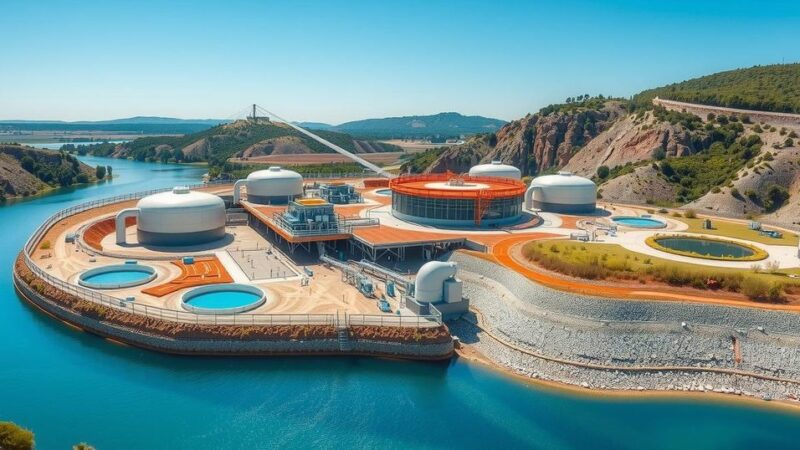Morocco has initiated a “water highway” project costing $728 million to divert surplus water from the Sebou River to alleviate water shortages in cities like Rabat and Casablanca. While the project has successfully prevented immediate water crises for millions, experts express concerns about its long-term sustainability amidst ongoing climate change and increasing drought severity. A shift towards integrated water management strategies is recommended to enhance resilience against future water scarcity.
Morocco is investing heavily in a “water highway” project aimed at diverting excess water from northern rivers to address the water scarcity faced by cities like Rabat and Casablanca. The government has allocated $728 million to redirect the flow of the Sebou River, thus averting immediate water supply crises for approximately 12 million residents. Officials have reported that this initiative has effectively met the urgent drinking water requirements of the most populated regions, especially following a critical situation in late 2023 when reservoirs were nearing depletion.
The project seeks to utilize the natural surpluses from the Sebou basin due to historical rainfall patterns in the northern Atlas mountains, escalating its distribution to eventually include the city of Marrakesh. A diversion dam constructed in Kenitra captures and processes water that would otherwise flow into the ocean, funneling it through a 67-kilometre underground canal directly to urban consumers. By early March, the “water highway” had already facilitated the delivery of over 700 million cubic metres of clean water.
However, the long-term feasibility of this strategy is under scrutiny, as experts express concerns regarding sustainability in light of severe drought conditions and ongoing climate change impacts. Morocco has experienced six consecutive years of drought, causing a stark decline in water availability—from 18 billion cubic metres in the 1980s to merely five billion currently. Despite recent rainfall, the country remains in a state of water stress, burdened by ongoing dry conditions that have persisted longer than historically recorded.
Rising global temperatures are exacerbating these challenges, resulting in increased evaporation and potential reductions in overall rainfall, particularly in the regions that the “water highway” aims to service. Researchers advocate for caution, with recommendations suggesting a reassessment of the project, as future scenarios predict heightened water deficits. Agricultural demands further complicate the situation, with a significant portion of Morocco’s workforce relying on farming, which requires substantial irrigation resources. Experts suggest investing in more sustainable irrigation methods and desalination technologies as complementary solutions to future water supply needs.
In conclusion, Morocco’s “water highway” represents a significant investment in addressing urban water shortages and averting immediate crises in populated areas. While the initiative has yielded substantial short-term success, concerns regarding climate change and sustainability necessitate careful consideration of future water resource management strategies. Experts recommend diversifying approaches to remain resilient against ongoing challenges, including developing alternative water sources such as desalination and improved agricultural practices to optimize water efficiency.
Original Source: www.thedigitalcourier.com






